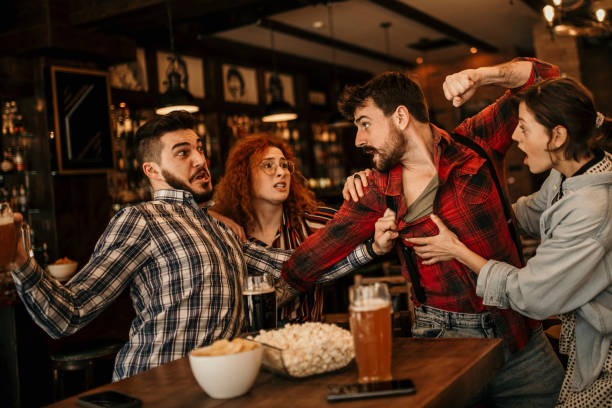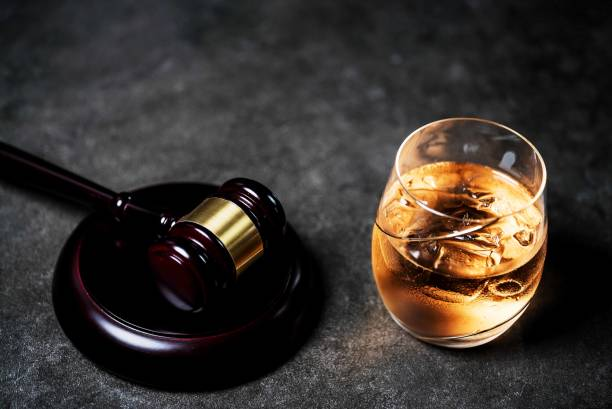The “One Punch Law” is one of the more recent laws the government has implemented to curb alcohol-related violence, resulting in numerous injuries and fatalities. One-punch assault, often in nightlife hotspots, has left many Australians terrified.
When Did NSW Introduce the One Punch Law?
The government made the one punch law effective in New South Wales in 2014. The Crimes and Other Legislation Amendment (Assault and Intoxication) Act 2014 amended the Crimes Act 1900 to include a new offence – Assault Causing Death. Section 25A of the Act states that “A person is guilty of an offence under this subsection if:
- the person assaults another person by intentionally hitting the other person with any part of the person’s body or with an object held by the person, and
- the assault is not authorised or excused by law, and
- the assault causes the death of the other person.”
The law aims to address the issue of senseless violence and alcohol-fuelled attacks that resulted in deaths across the country. Furthermore, the new legislation offers the courts and police a varied strategy to deal with such attacks successfully.
Elements of the Crime
To prove the existence of the crime, the following elements must occur:
1. Unlawful Assault
The first element of the one punch law is that the offender must have committed an unlawful assault. An unlawful assault is when someone purposefully or carelessly puts another person in fear of unprovoked violence. This means that the offender must have intended to use force against the victim. They must have acted recklessly in a way that they knew or should have known could harm the victim.
2. Death Resulting from the Assault
The second element is that the unlawful assault must have resulted in the victim’s death. This means the victim must have died due to the offender’s actions. It is important to note that the death does not need to occur immediately after the assault if there is proof that the victim’s death was a direct result of the injuries sustained during the assault.
3. Intoxication
The third element relates to the offender’s level of intoxication. The law states that if the offender was intoxicated during the assault, they could still be held responsible for the victim’s death. Section 4 of the Act provides that an intoxicating substance includes “alcohol or a narcotic drug or any other substance that affects a person’s senses or understanding.” This element was introduced to deter people from using alcohol or drugs as an excuse for violent behaviour.

Penalties of the Crime
Section 25A of the Crimes Act 1900 NSW outlines the maximum and mandatory minimum sentence for one-punch offences. The penalties depend on the severity of the offence and whether the offender was in an alcohol-or drug-fuelled state.
- If a person is convicted of a one-punch offence that results in death and they were intoxicated at the time of the offence, they face a maximum penalty of 25 years in prison. If the offender was not intoxicated, the maximum penalty is 20 years in prison.
- If the victim does not die but suffers grievous bodily harm, the maximum penalty is 25 years in prison if the offender was under the influence, and 20 years if not.
- Even if the victim does not suffer grievous bodily harm, the offender can still face a maximum penalty of 14 years in prison if intoxicated and ten years if not.
These are severe penalties, and offenders will likely face significant prison time if convicted. The punishments depict the “powerful deterrent” the authorities sought to establish. Some people think the laws are too strict because of this and the section’s broad interpretation. The one punch laws have prevailed and are still in effect today amidst that criticism.
Defences Available if You are Facing Charges under the One Punch Law
Despite the strict application of the one punch law, defences are available for those charged with an offence under Section 25A of the Crimes Act 1900.
Self-Defence
One of the defences available for those charged with this offence is self-defence. Self-defence is a legal justification for using force to defend oneself or others from harm. To successfully use this defence under this Section, the accused must prove that they acted in self-defence and that the force used was not excessive. The accused must also demonstrate that they believed, on reasonable grounds, that using force to defend themselves or others from harm was necessary.
No Causation
The basis of this defence is that the accused did not commit unlawful striking causing death or grievous bodily harm. For example, if the victim was suffering from a pre-existing medical condition that caused their death, the accused may be able to argue that their actions did not cause the victim’s death. It is important to note that the accused must raise the defence of no causation, and it is up to them to prove that they did not cause the victim’s injuries.
Duress
Duress occurs when someone is forced to commit a crime because they fear for their safety or the safety of others. If the accused can show that they were acting under duress when they committed the assault, they may be able to use this defence.
However, to successfully use the defence of duress, the accused must show that they had no other reasonable option but to commit the crime. The defence of duress can be challenging to prove, and it is up to the accused to provide evidence to support their claim.
The One Punch Law has brought attention to the devastating impact of one-punch offences and the need for strong penalties to deter these crimes. The maximum penalties outlined in Section 25A of the Crimes Act 1900 NSW reflect the severity of these crimes and the need for justice for victims and their families.
It is important to remember that prevention is vital, and education and awareness campaigns can help to create a safer community for all. If you are facing charges of one-punch offence, seeking legal advice is essential to ensure the best possible outcome.

The Importance of Seeking Legal Advice
If you or someone you know is facing charges under the one punch law, it is crucial to seek legal advice as soon as possible. The penalties for these offences are severe, and a criminal conviction can significantly impact a person’s life. A criminal defence lawyer can provide advice and representation in court, helping to achieve the best possible outcome for the accused.
JB Solicitors is a team of lawyers proficient in criminal law. Our criminal law attorneys can help you understand the charges, legal rights, and the potential consequences. We can also work with you to build a strong defence and represent you in court. We will ensure you receive a fair trial, mandatory minimum sentences, and the best possible outcome.
Contact us today.
